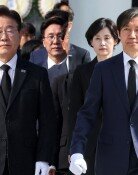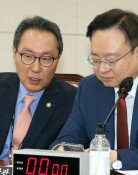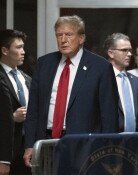What is our wish?
What is our wish?
Posted April. 10, 2017 07:11,
Updated April. 10, 2017 08:20
A husband found that his wife having hard time in getting pregnant has taken medicine in secret. He first thought that the medicine is for infertility treatment but it turned out to be contraceptive pills. Having witnessed and fallen into despair that his husband suffers blatant discrimination due to poor family background, the wife has completely given up to have a baby because she believed that her kid would face same destiny as her husband. Her father-in-law who used to be a rich farmer during Japanese colonial era was executed as an “antiparty and counterrevolution reactionary.” “A mother gives birth because she hopes her baby to be blessed. She would never do so if her baby would have to tread a thorny path,” the wife cries out. (“A journey for escaping North Korea” excerpted from “The Accusation” written by “Bandi”)
Bandi is the pen name of a writer who is dubbed as “Solzhenitsyn of North Korea.” As his story of suffocating depression and watch committed by the North has been taken out to South Korea, it has been published and translated, drawing attention home and abroad. “A war for the emancipation of slave should be waged to save North Koreans,” Thae Yong Ho, former North Korea diplomat in the U.K., urged at International Conference on Literature and Human Rights held on March 29, expressing his deep sympathy to vivid description in Bandi’s book. Speaking in public, Thae’s eyes were reddened and his voice shaking.
“It seems that we were all born in the country that we shouldn’t have been.” Park U-hui, a character in a novel called “Our wish is war” written by Jang Kang-myeong, who is tracking down the suspicious death of his son, laments that North Korea is not a place where people to live. Bandi’s story is whistle-blowing from the inside while Jang used writer’s imagination for the reality of North Korea whose national state has become uncontrollable after the regime's collapse. The two books, however, send similar repercussion that makes their readers feel heavy-hearted and uneasy. What should be done for such a country as North Korea?
It appears that the spring in the Korean Peninsula is precarious. While North Korea’s nuclear crisis in 1994 was resolved with a stopgap measure of the Geneva Communiqué of 2012, no one knows if the current crisis, which is entirely different from the one in 1994 would be resolved with a negotiation. Our earnest dream to prevent the war and protect peace may not come true. This spring where we feel dizzy due to “nuclear sickness” by Pyongyang pushes us to make a decision that can no longer be delayed. Can the decision be made through either diplomatic approach or the collapse of the Kim Jong Un regime? Is it something beyond it, such as reunification? The price we have to pay varies depending on the option that we choose. What is your wish then?
eligius@donga.com
Headline News
- Israel prepares for retaliation against Iran
- Samsung reclaims top spot, surpassing Apple in smartphone market
- 77% of Koreans in 20s and 30s are 'Kangaroo Tribe' due to job crisis
- KBO referees embroiled in controversy over ABS decision concealment
- Inflation, oil price surge put double shock on global economy







